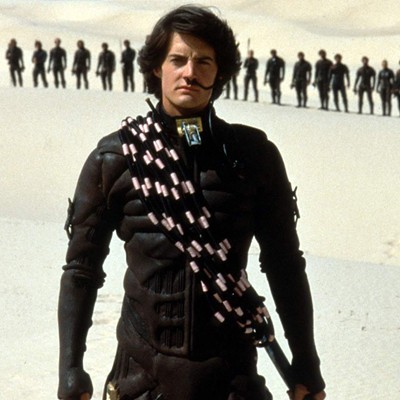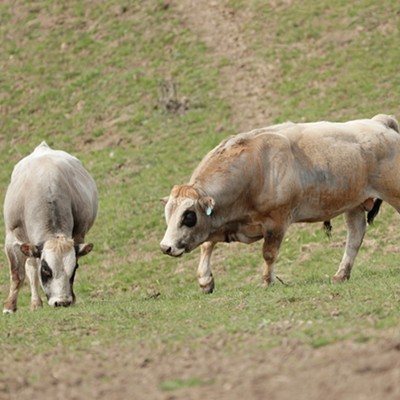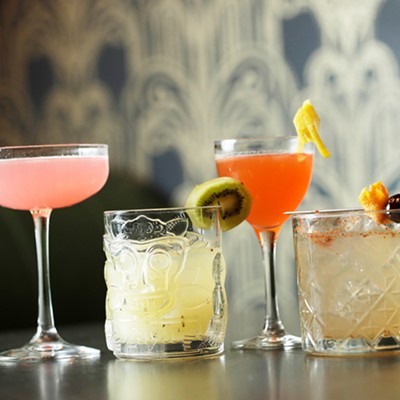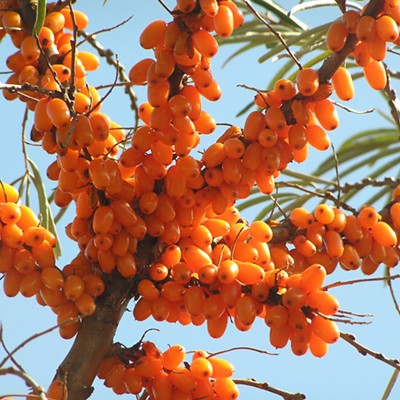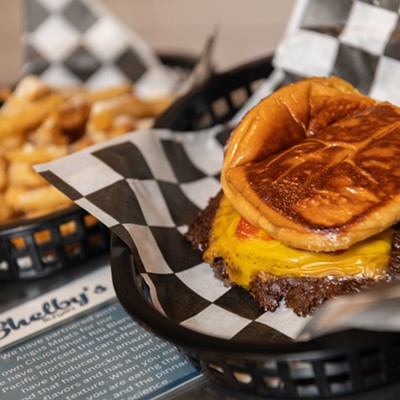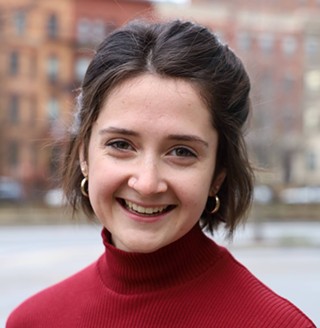I accepted the job as a food writer at the Inlander when I was living with my parents in Chicago. After stints in southeast Asia and on the East Coast, I thought I was finally committed to staying in the Midwest.
But a job is a job, and this seemed like a pretty cool job, so I got ready to move for the sixth time in four years.
As soon as I started to second-guess, Inlander editor-in-chief Nick Deshais forwarded me a message from Kate Lebo. She and her husband, Sam Ligon, both established and award-winning authors and teachers, were hosting an intensive food writing workshop at a goat farm in Stevens County. They hoped to connect local food writers and food suppliers over creative writing classes, farm-to-table meals and lots of quality time with goats.
I've been glad I took the job ever since.
In the 1980s, Rick and Lora Lea Misterly bought Quillisascut Farm not to make a profit but to build a life. Once I got there, I realized that "goat farm" was too narrow of a description. Quillisascut is 36 acres dedicated to the "slow life" — buildings built by hand, places to camp, a flower and herb garden, pens for goats and poultry, and a couple acres out back with almost every kind of food you can grow in Washington.
LEARN MORE
Upcoming events at Quillisascut Farm include Farm Culinary 101, Slow Living Autumn Gather, a lefse class and a tamale workshop. For more information about the farm and its offerings, including an original cookbook, visit quillisascut.com.
Lora Lea started making goat cheese a few years after starting their farm. Today, Quillisascut hosts a school of domestic arts for culinary students interested in farm-to-table cooking, plus any artist looking to connect with land and food.
For four-and-a-half days earlier this month, writers, chefs, brewers, bakers, jam makers and butchers from all over the West Coast ate and wrote together at Quillisascut. I logged notes and took pictures, trying to record how the slow life could be so full, so demanding and so delicious.
TUESDAY, AUG. 8
9:54 pm: Almost ready to leave tomorrow morning. Just finished the readings Kate assigned. Now I can nod knowingly when people mention M.F.K. Fisher and Craig Claiborne. Tent, sleeping bag and barn boots are ready by the door. Copied directions from Google maps in case cell service goes out.
WEDNESDAY, AUG. 9
2:22 pm: Arrived at Quillisascut. Cell service went out pretty soon after turning off U.S. Route 395. Written directions were vague, so made a couple wrong turns. At Quillisascut, met by Rick. Pointed me to a spot to pitch my tent. Says cheese platter is waiting for us inside.
2:47 pm: Cheese platter was actually cheese feast. Chevres, chipotle-rubbed, herb-crusted, aged and fresh. Met chefs who will cook for us all weekend, from only farm ingredients. My heroes.
4:05 pm: Toured the grounds, met the goats, learned about compost. Goat manure is the most valuable thing the farm produces, Rick says. Garden is loved, not organized. Walnut trees, peaches, plums, apples, almonds, grapes, lettuces, kale, cabbage, beans, tomatoes, peppers, eggplant, zucchini, corn. Rick says a real farmer would never plant almonds this far north, but he likes them. Rick seems like a real farmer to me?
6:08 pm: Insane dinner. Walnut and goat cheese pasta, lamb chops, homemade focaccia, kohlrabi salad. Overheard chefs talking about a 20 pound kohlrabi from the garden.
7:00 pm: First class. Group tried to decide what food writing is. Recipes? Restaurant reviews? Memoir? Political investigations? All of the above? Students are mostly from Seattle and Portland. C'mon people, where are all the foodies from Spokane?
8:59 pm: Headed back to tent as it gets dark. Have to wake up at 6:45 to help feed ducks and chickens. Opened tent flap to see stars.
THURSDAY, AUG. 10
6:15 am: Alarm goes off.
6:38 am: Got out of sleeping bag.
6:47 am: Ran to barn to meet Rick for chores. Water and feed ducks, hens, meat chickens and turkeys. Ducks smell really bad.
7:15 am: Coffee. Thank goodness.
9:00 am: Kate rings bell with large cow bone to start class. Discussion on recipes, how to use recipe for other purposes like memoir and essay. Read recipe for frittata, aka a commentary on social media. Tried to write my own recipe for single-serve air fryer tofu, aka how to move to a new city. Metaphor is a little heavy handed.
11:03 am: Help Lora Lea make fresh mozzarella and ricotta. Had no idea you could make cheese in 30 minutes.
1:30 pm: Class with Sam on nonfiction, memoir, how to manipulate time.
4:34 pm: Spent 20 minutes petting goats. Why is goat such an unpopular food in the U.S.? Plan to look for chefs who serve goat in Spokane.
5:33 pm: Students make our own pizzas with the cheese we made this morning. As a recent ex-vegan, still getting used to all this cheese. Made a cheese-less pizza, forgot the salt. Fellow student called my creation the Antichrist.
7:35 pm: Kate and Sam read some published work. Tell us that tomorrow and Saturday night, students will read something that we're working on. Oh, no.
FRIDAY, AUG. 11
6:35 am: Rush to barn to watch Rick milk goats.
9:00 am: Class with Kate. All about plants, ways of knowing, paying close attention. Spent 20 minutes staring at a stalk of corn.
11:00 am: Help harvest green beans, tomatillos. Tomatillos growing unplanned, have to search entire garden to find all the plants.
1:35 pm: Class with Sam on fiction. Holy cow, I am not a fiction writer.
4:12 pm: Talked to Rick about goats, butchery, capitalism. Other students went swimming.
7:53 pm: Six students read. I read a piece about why we should all be more like goats. Audience laughed politely.
SATURDAY, AUG. 12
6:46 am: Garden chores, only a minute late. Picked fresh sage for the day.
11:08 am: Depart for wild food walk. Ate weeds, berries, pine needles picked from farm and nearby roadside. Learned that a lot of plants won't kill you. Dodged cars, which could kill you.
2:15 pm: Wrote a coming of age story about black pepper.
7:00 pm: Final feast. Goat and lamb, ratatouille, sweet corn and black currant tiramisu.
11:02 pm: Stayed up late after student readings to watch the meteor shower from the roof. Starting to dread saying goodbye.
SUNDAY, AUG. 13
6:30 am: No chores today, but got up anyway.
9:00 am: Gather around the table for thank-yous, suggestions, thoughts on funding.
10:17 am: Car is packed. Hugs all around. Promises to hang next time I'm in Seattle.
12:15 pm: Home in Spokane. Fridge is empty. Stale PB&J for lunch. Tomato plant died while I was away. ♦






